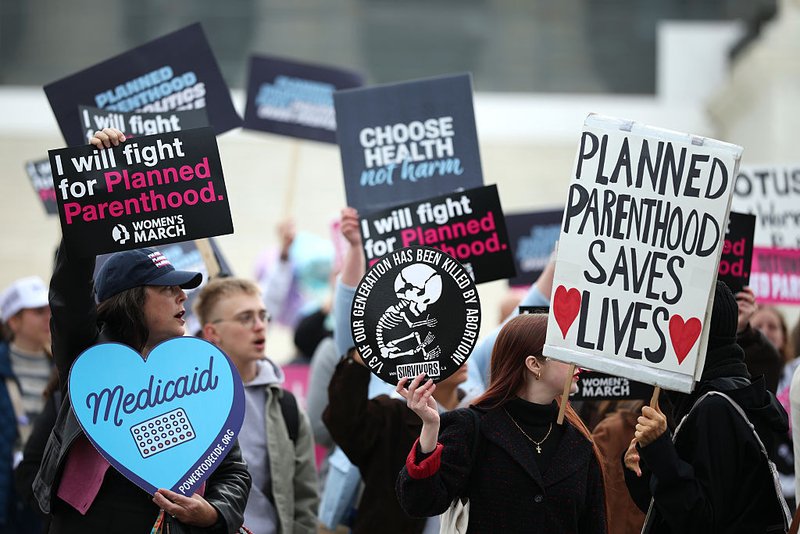Impacts of New Law on Planned Parenthood Clinics
A new law that cuts Medicaid funding for specific clinics has led Planned Parenthood to estimate that 200 out of 600 clinics across 24 states could face closure. Most of these clinics are located in states where abortion remains legal.
A federal judge ruled against the Trump administration’s attempts to revoke Medicaid funds from mainly Planned Parenthood facilities. Massachusetts District Judge Indira Talwani dismissed the government’s argument that implementing the law would lead to “irreparable injuries,” allowing Planned Parenthood to continue applying for Medicaid. She pointed out potential harms the plaintiffs might face, such as clinic closures and reduced services, if the regulations were enforced.
Talwani stated that if the plaintiffs are likely to succeed in proving that the law violates constitutional provisions, the defendant wouldn’t suffer irreparable harm. She emphasized that the law specifically targets certain groups, primarily those linked to Planned Parenthood, indicating their chances of overturning it are strong.
Last month, Judge Talwani ordered a partial interim injunction against the law, which is scheduled to expire on July 4, 2026. This provision affects mainly clinics associated with Planned Parenthood, with projections indicating that 200 clinics could be at risk.
Additionally, two other organizations in Massachusetts providing family planning services may also be affected. Judge Lance Walker in Maine recently rejected a request for an interim injunction aimed at protecting local family planning entities facing potential layoffs and disruptions for about 8,000 patients due to anticipated losses of up to $2 million.
The new Medicaid funding rules have created uncertainty within the Planned Parenthood network. They prohibit federal funds for any organization associated with abortion services, even if they provide other essential healthcare like birth control or cancer screenings.
Despite the injunction currently in place, several clinics have already closed due to previous funding restrictions. This includes facilities in Ohio and Louisiana, some of which never provided abortion services.
Planned Parenthood argues that the new rules unfairly exclude them from Medicaid funding based on their association with abortion advocacy. They assert that the intention behind the law is punitive, aiming to undermine organizations that advocate for reproductive rights.
There is ongoing debate regarding whether the law constitutes unlawful targeting of Planned Parenthood specifically. Experts argue that while proving selective targeting in legislative actions is challenging, this case seems to present a clear example of such targeting.
Ultimately, as the legal battle continues, the outcomes could significantly impact access to reproductive healthcare services across the country.







